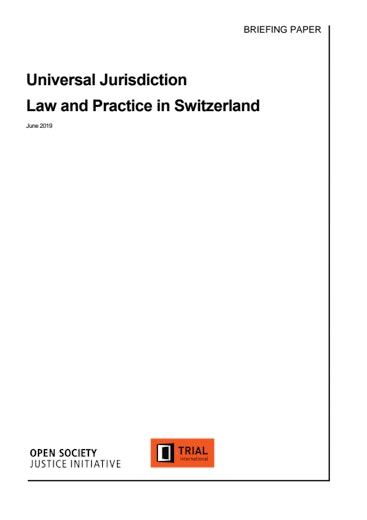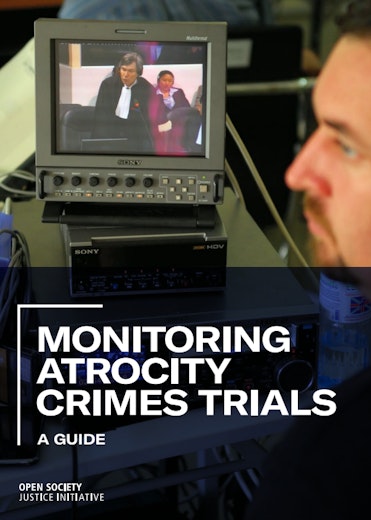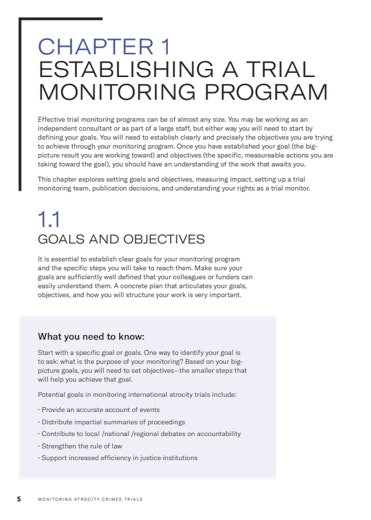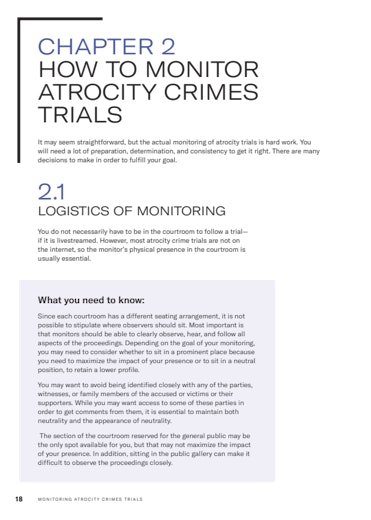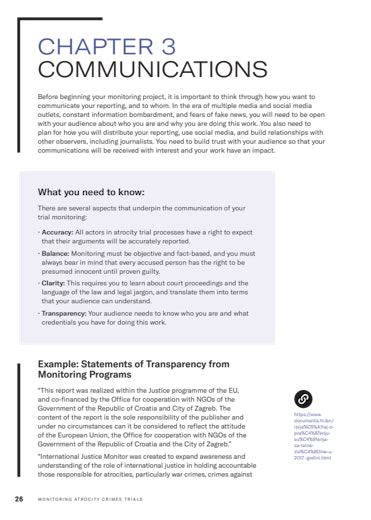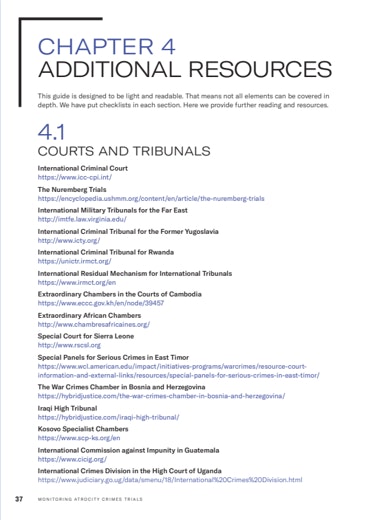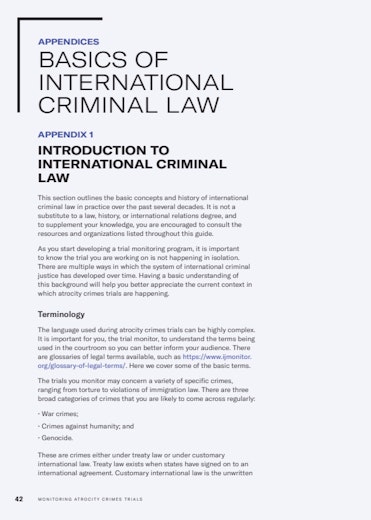Monitoring Atrocity Crimes Trials: A Guide
Observing and reporting on atrocity crimes trials is a unique challenge. Those who undertake this responsibility must understand the history and context of the trial, as well as complicated legal theories, courtroom procedures, and the key actors involved. Further, they must communicate this complex information in a comprehensible way to audiences that are often far removed from the courtroom.
This guide is intended to help non-governmental organizations, journalists, and others to better understand, describe, and convey the work of international criminal trials. It covers a range of trial monitoring activities, from establishing a monitoring program, to covering daily events in the courtroom, to defining audiences and selecting the best ways to communicate with them.
Trial monitoring is demanding work, requiring knowledge of communications, legal practice, and technical language. Most of all, it requires a commitment to objectivity, accuracy, and fairness. Although trial monitoring is difficult, the growing number of atrocity crimes trials will require an increasing number of skilled monitors. It is hoped that this guide will help meet that demand.
Universal Jurisdiction Law and Practice in Germany
The principle of universal jurisdiction allows national courts to investigate and prosecute international crimes committed on foreign territory by foreign nationals. This briefing paper provides an overview of Germany's legal framework on universal jurisdiction and was produced in partnership with TRIAL International.
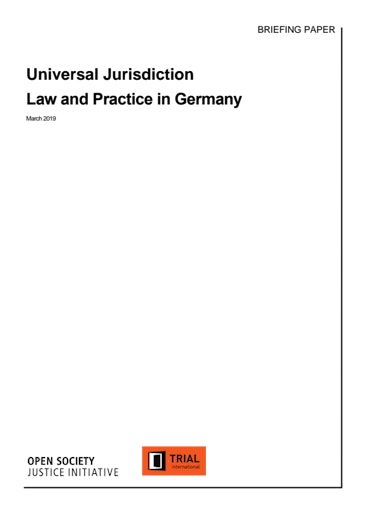
Universal Jurisdiction Law and Practice in France
The principle of universal jurisdiction allows national courts to investigate and prosecute international crimes committed on foreign territory by foreign nationals. This briefing paper provides an overview of France's legal framework on universal jurisdiction and was produced in partnership with TRIAL International.
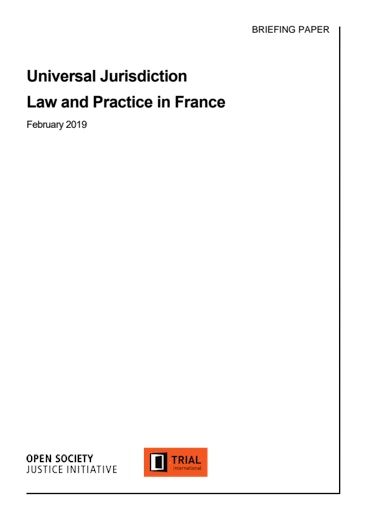
Universal Jurisdiction Law and Practice in Switzerland
The principle of universal jurisdiction allows national courts to investigate and prosecute international crimes committed on foreign territory by foreign nationals. This briefing paper provides an overview of Switzerland's legal framework on universal jurisdiction and was produced in partnership with TRIAL International.
